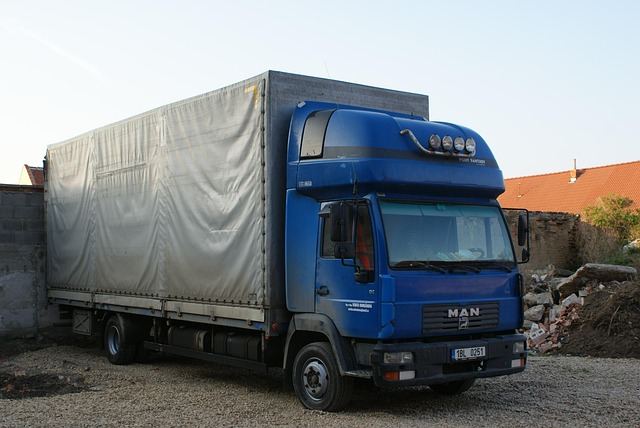Starting a trucking operation comes with unique risks that require specialized insurance, known as startup fleet coverage. Insurers assess each truck in the fleet, considering mechanical failures, weather incidents, driver experience, vehicle age, safety protocols, and financial factors to create tailored policies. Comprehensive insurance offers broader protection against various risks like cargo security and dispatch errors. By prioritizing the right insurance strategy, building a strong safety culture through training and maintenance, leveraging technology like telematics, and carefully selecting coverage based on operational needs, trucking startups can achieve cost-effective comprehensive protection without compromising safety.
Starting a trucking operation comes with unique risks that demand tailored insurance strategies. This comprehensive guide navigates the challenges of insuring your new venture, from understanding key risks to finding the right startup fleet coverage options. We explore building customized insurance plans and effective strategies for cost management while maximizing protection. By implementing these insights, you’ll ensure your trucking business is secure from unforeseen events.
Understanding the Unique Risks of Trucking Operations

Starting a trucking operation comes with its own set of risks and challenges, distinct from traditional business models. Insurers must consider factors like driver safety, vehicle maintenance, and regulatory compliance, which can vary widely among new trucking startups. Each truck in the fleet poses unique hazards, from mechanical failures to weather-related incidents, making comprehensive coverage essential for any startup looking to mitigate potential losses.
Understanding these risks is crucial when securing startup fleet coverage. Insurers need to assess the operation’s initial phase, where costs are often high and profits low, requiring tailored policies that offer adequate protection without breaking the bank. By evaluating driver experience, vehicle age and condition, and adherence to safety protocols, insurers can create customized solutions, ensuring both the financial stability of the trucking startup and the safety of its operations on the road.
Navigating Startup Fleet Coverage Options

When establishing a new trucking operation, navigating the world of startup fleet coverage can seem like a daunting task. There are numerous options available, each catering to different needs and budgets. Insurers offer a range of policies designed specifically for young fleets, often providing flexible terms and customizable coverages. These may include liability insurance, which protects against potential damages caused during operations, and physical damage coverage to safeguard vehicles from accidents or natural disasters.
Business owners should also consider comprehensive insurance, offering broad protection against various risks. This can include cargo coverage, ensuring the security of transported goods, as well as dispatch services liability, protecting against claims arising from communication errors or misdirection. Understanding these options is crucial for making informed decisions on startup fleet coverage, ultimately ensuring a solid foundation for risk management in the trucking industry.
Building a Customized Insurance Strategy

When launching a new trucking operation, crafting a tailored insurance strategy is paramount. Unlike established fleets, startups face distinct risks, from unfamiliar drivers to brand-new vehicles. A comprehensive approach should incorporate startup fleet coverage that addresses specific needs like mechanic damage, young driver inexperience, and potential cargo loss. This requires open communication with insurers to identify unique risk factors and design a policy that offers the right balance between protection and affordability.
Strategies for Mitigating Costs and Maximizing Protection

New trucking operations face a unique set of challenges when it comes to insurance, particularly when aiming to balance cost-effectiveness with comprehensive protection. To mitigate expenses, operators can focus on building a robust safety culture from day one. This includes implementing rigorous driver training programs and adhering to strict maintenance schedules for vehicles, which not only reduces the risk of accidents but also lowers insurance premiums over time. Additionally, leveraging technology like telematics for real-time tracking and monitoring can enhance safety performance and make a compelling case for insurers, potentially leading to better rates.
Maximizing protection involves a strategic approach to coverage options. Startup fleet coverage should encompass liability insurance to safeguard against potential damage or injury claims, as well as comprehensive and collision coverages to protect against vehicle-related losses. Furthermore, considering additional policies like cargo insurance, especially for high-value loads, ensures that the business is shielded from financial loss in the event of theft, damage, or loss during transit. By carefully selecting coverage based on specific operational needs and leveraging cost-saving strategies, new trucking operations can find a balance between affordability and robust protection.
Starting a trucking operation comes with distinct challenges that require tailored solutions. By understanding the unique risks involved, navigating startup fleet coverage options, and building a customized insurance strategy, new businesses can mitigate costs and maximize protection. This proactive approach ensures a solid foundation for long-term success in the competitive trucking industry. Remember, the right insurance strategy isn’t just about compliance; it’s about safeguarding your investment, managing risk, and promoting sustainable growth.
